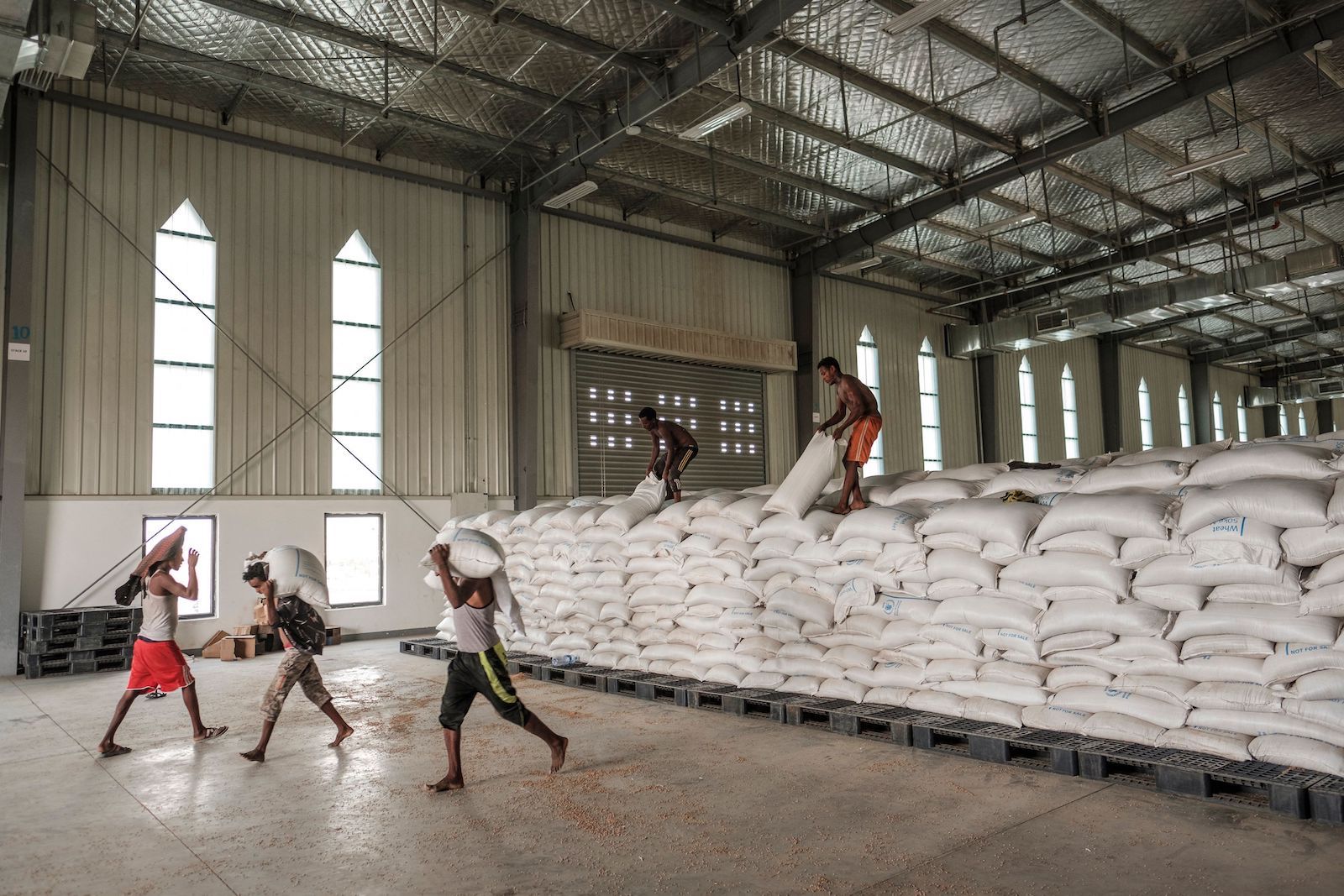Alex de Waal

The United Nations has assessed that 276 million people worldwide today are “severely food insecure.” Forty million are in “emergency” conditions, one step short of the UN’s technical definition of “famine.” By early this year the combined effects of the climate crisis, the economic fallout from Covid-19, armed conflict, and the rising costs of fuel and food had already caused a sharp increase in the number of people in need of relief. Then the Russian invasion of Ukraine suddenly shut down wheat exports from the world’s breadbasket. For five months, Russian warships blockaded Black Sea ports and stopped grain cargoes from leaving, both to strangle the Ukrainian economy and to destabilize food-importing nations to pressure the US and Europe into relaxing sanctions.
“We face a real risk of multiple famines this year, and next year could be even worse,” UN Secretary-General António Guterres warned the General Assembly in July. Four days later he and Turkish President Recep Tayyip Erdoğan announced that they had brokered parallel deals with Russia and Ukraine to resume grain and synthetic fertilizer shipments. Despite a Russian strike on Odesa, the first ships laden with Ukrainian wheat departed on August 1. (No date is yet set for Russia to resume exporting fertilizer.) As of September 4, eighty-six ships carrying over two million tons of food had left Ukrainian ports. World prices for wheat and sunflower oil have dropped, portending lower bread prices in Egypt and easing the strain on the World Food Program (WFP) budget for emergency food aid. Speaking in the Ukrainian city of Lviv, Guterres congratulated himself and Erdoğan on the agreement, the Black Sea Grain Initiative, which would, he said, “help vulnerable people in every corner of the world.”
Lifting the Black Sea blockade is an important step toward making food more affordable for tens of millions who before the recent price hike were already spending a third or more of their daily outlay on bread. Poor families in countries such as Bangladesh, Egypt, Lebanon, and Nigeria will become less “food insecure,” in the specialists’ parlance. For that alone, Guterres is entitled to a rare plaudit for diplomacy. But by implying that the Black Sea Grain Initiative would not only reduce bread prices and put more grain on the market but also prevent famine, the UN Secretary-General—along with many commentators—was conflating food insecurity with mass starvation, a very different kind of crisis.
Bringing Ukrainian produce back to the world market will alleviate the first but have little impact on the second. This is because almost all modern famines are caused by tactics of war. The hunger siege has long been the warmaker’s favorite weapon: it is simple, cheap, silent, and horribly effective. Even as it stopped ships laden with wheat from leaving Ukraine, Russia forced Ukrainians into cellars and kept them from getting food, water, and other essentials. The Russian army has had practice with the strategy; deprivation of everything necessary to sustain life was a major feature of the Chechen Wars. In Syria, President Bashar al-Assad’s troops spray-painted the slogan SURRENDER OR STARVE at checkpoints outside opposition enclaves, which they went on to besiege with Russian military advice and support.
According to the UN, more than half a million people in four countries—Ethiopia, South Sudan, Yemen, and Madagascar—are in “catastrophic or famine conditions.” Last week the UN and humanitarian agencies also declared “unfolding famine” in Somalia, a nation hit by a lethal combination of drought and conflict, where they have collected survey data showing that certain parts of the country are crossing the threshold from “emergency” to “famine.” Of those five countries, four are stricken by civil war. (Madagascar is a rare contemporary case of extreme food insecurity without civil war, where a sequence of unprecedented droughts has left the southern part of the island in dire straits.) Fighting in poor countries heightens food insecurity by hindering farming, disrupting food markets, and diverting scarce budgets from health and welfare programs to soldiers and arms.
No comments:
Post a Comment